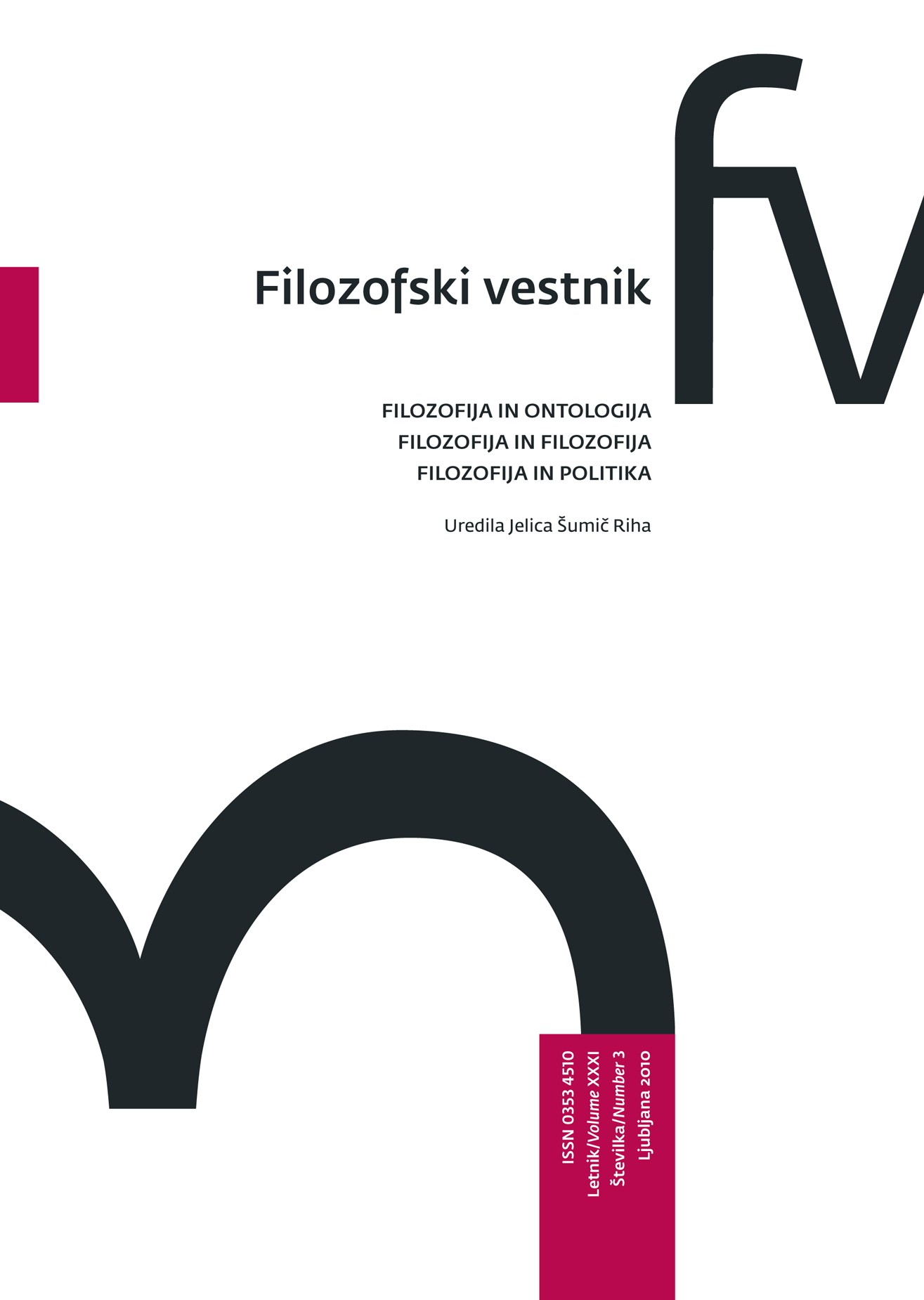Filozofija kot vzgoja z resnicami
Ključne besede:
Agamben, Badiou, filozofija, resnica, čas, večnost, zgodovinaPovzetek
Namen pričujočega prispevka je preiskati možnost filozofije v današnjem svetu, izhajajoč iz nasprotujočih si rešitev, ki ju ponujata Adorno in Foucualt na to vprašanje. Za Adorna lahko filozofija, ki je zamudila trenutek svojega udejanjenja, preživi edino, če svet opazuje z gledišča odrešenja. Foucault pa vidi nalogo filozofije v tem, da se obrne k svojemu času in iz njega iztrga »nekaj večnega«. Teza pričujočega prispevka je, da Badiou in Agamben, ki sta sprejela izziv ohranjanja nerešljive napetosti med tema dvema antinomičnima potema, ponujata nasprotni strategiji za reševanje problema sodobnosti filozofije. Kljub nekaterim nevprašljivim konvergencam, sta Agambenova in Badioujeva rešitev – obe izhajata iz ponovnega premisleka razmerja med preteklostjo in sedanjostjo, obe vztrajata na ustvarjanju razpoke v času, ki ločuje čas od tistega v njem, kar je več od časa, namreč trenutki »imanentne večnosti«, in obe, posledično, poudarjata subjektivni raje kot zgodovinski vidik preloma s sedanjo zagato – dva najbolj diametralno nasprotujoča si pristopa do časa. Agamben, ki vso transformativno moč pripisuje zgolj suvereni oblasti, lahko vidi odpor edino v potencialnosti, se pravi, v pasivnosti oziroma neoperativnosti. Badioujeva »vzgoja z resnicami« pa ponuja drugačno rešitev, ki bistveno mobilizira filozofijo pri iskanju izhoda iz trenutnega stanja, izhoda, ki se obenem ogne nemoči Agambenove rešitve. Kajti če se filozofija po Badiouju obrača k preteklosti, to ni zato, da bi obnovila njeno kontingentnost, pač pa prej, da bi proizvedla novo sedanjost, paradoksno podjetje, ker gre za to, da je nova sedanjost proizvedena sredi sedanjosti sveta, a tako, da se pri tej operaciji produkcije sedanjosti nanašamo na nekaj, kar je že izginilo, namreč dogodek.Prenosi
Podatki o prenosih še niso na voljo.
Prenosi
Objavljeno
2016-03-15
Kako citirati
Šumič-Riha, J. (2016). Filozofija kot vzgoja z resnicami. Filozofski Vestnik, 31(3). Pridobljeno od https://ojs.zrc-sazu.si/filozofski-vestnik/article/view/4499
Številka
Rubrike
Filozofija in filozofija
Licenca
Avtorji jamčijo, da je delo njihova avtorska stvaritev, da v njem niso kršene avtorske pravice tretjih oseb ali kake druge pravice. V primeru zahtevkov tretjih oseb se avtorji zavezujejo, da bodo varovali interese založnika ter da bodo povrnili morebitno škodo.
Podrobneje v rubriki: Prispevki





